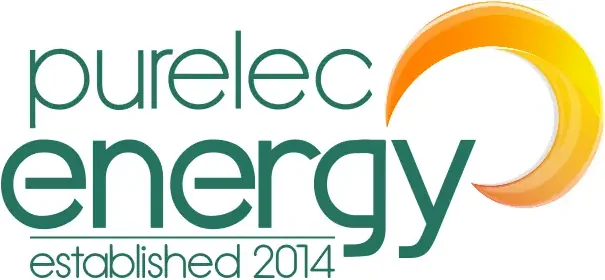
As the UK general election approaches, there’s a growing need to understand the energy policies proposed by each major political party, in order to make an informed decision.
Here, we provide a clear breakdown of their plans regarding renewable energy incentives, solar panel subsidies, battery storage investments, and overall strategies to combat climate change.
Conservative Party
The Conservative Party’s approach focuses on balancing ambitious renewable energy targets with fiscal conservatism – they say they’ll meet their goal of reaching net zero by 2050, without what Rishi Sunak calls “unaffordable eco-zealotry”.
Key policies
- Net zero by 2050: Committed to achieving net zero emissions by 2050, without imposing new green levies or charges. Major climate decisions will require parliamentary approval.
- Renewable energy rollout: Plan to treble offshore wind capacity, aiming to deliver low-cost, home-grown energy and support industrial clusters in regions such as the North East of England, Scotland, and Wales.
- Nuclear power: Approve new small modular nuclear power stations to diversify the energy mix.
- Carbon capture and storage: Establish the first two carbon capture and storage clusters in North Wales, North West England, Teesside, and the Humber. Future projects are planned for Aberdeenshire and the Humber.
- Green industries growth accelerator: Invest £1.1 billion to support British manufacturing, boost supply chains, and ensure the energy transition is domestically driven.
By avoiding new green levies, they aim to maintain economic stability while still pushing for significant renewable energy advancements. Their commitment to offshore wind and modular nuclear power stations reflects a strategy to enhance energy security and reduce dependence on fossil fuels. The investment in carbon capture and green industries highlights their intent to foster innovation and job creation in the renewable sector, though their emphasis on parliamentary approval for major climate decisions may slow the implementation of some initiatives.
Labour Party
Labour sets forward a multi-pronged approach to make Britain a “clean energy superpower”. They propose setting up Great British Energy – a new publicly-owned, clean homegrown energy company – to cut bills for good, achieving energy independence from dictators like Putin, and facilitating warmer homes to slash fuel poverty.
- Warm Homes Plan: Offer grants and low-interest loans for insulation, solar panels, batteries, and low-carbon heating improvements.
- Partnerships: Collaborate with combined authorities, local, and devolved governments to roll out the Warm Homes Plan.
- Private sector collaboration: Work with banks and building societies to provide private finance for home upgrades and low-carbon heating.
- Private rented sector: Ensure homes in the private rented sector meet minimum energy efficiency standards by 2030, saving renters money.
Labour’s Warm Homes Plan supports both public and private sector involvement in improving home energy efficiency. Their approach to grants and loans will make it easier for homeowners and landlords to invest in renewable energy technologies and insulation, potentially driving widespread adoption and reducing energy bills.
Liberal Democrats
In the 2024 manifesto, the Liberal Democrats promise to “put tackling climate change at the heart of a new industrial strategy”, with the aim of reaching net zero by 2045. In fact, climate change comes third in the list of priorities in the manifesto, after the economy, and business and jobs.
- Home upgrades: Launch a 10-year emergency upgrade programme to make homes warmer and cheaper to heat. This includes free insulation and heat pumps for low-income households.
- Zero-carbon new homes: Ensure all new homes are built to zero-carbon standards.
- Rooftop solar revolution: Expand incentives for households to install solar panels. This includes guaranteeing a fair price for electricity sold back to the grid.
The Liberal Democrats’ focus on home upgrades and zero-carbon new homes aligns well with the push for increased energy efficiency. Their rooftop solar incentives will likely boost solar panel adoption, making it more accessible for households to contribute to renewable energy generation.
Green Party
The Green Party say they want to reach net zero by 2040 at the latest. That is, most analysts would agree, an extremely ambitious target.
- Passivhaus standards: Ensure all new homes meet Passivhaus or equivalent standards, including solar panels and heat pumps where appropriate.
- Home insulation: Launch a local-authority-led, street-by-street retrofit programme. This includes:
- £29bn over five years to insulate homes to an EPC B standard or above.
- £4bn over five years to insulate other buildings.
- £9bn over five years for low-carbon heating systems, such as heat pumps.
- Renewable rollout: Phase out nuclear power (currently around 15% of the UK’s electricity) and replace it with renewable. They propose massive growth in both offshore and onshore wind power, and solar energy.
The Green Party’s comprehensive retrofit programme emphasises large-scale investments in energy efficiency and low-carbon heating. Their commitment to Passivhaus standards ensures new homes will be highly energy-efficient, significantly reducing energy consumption and bills.
As voters head to the polls, the choice between these diverse energy policies will be crucial in shaping the UK’s future in both environmental and economic terms. Each party’s vision presents different pathways to achieve sustainability, from the Conservative Party’s balanced fiscal approach to Labour’s emphasis on public sector leadership, the Liberal Democrats’ robust home upgrade plans, and the Green Party’s ambitious net-zero targets.
Understanding these policies not only empowers voters to make informed decisions but also highlights the significant role renewable energy and climate action will play in the next government’s agenda. The future of the UK’s energy landscape depends on the collective decision made in this election, underscoring the importance of every vote.
At Purelec Energy, we’re committed to staying informed and sharing knowledge to help you navigate the evolving landscape of renewable energy and energy efficiency. To discover how we can help with your energy efficiency project – from domestic to commercial solar panel installation and battery storage – get in touch and a member of our expert team will be happy to help.
